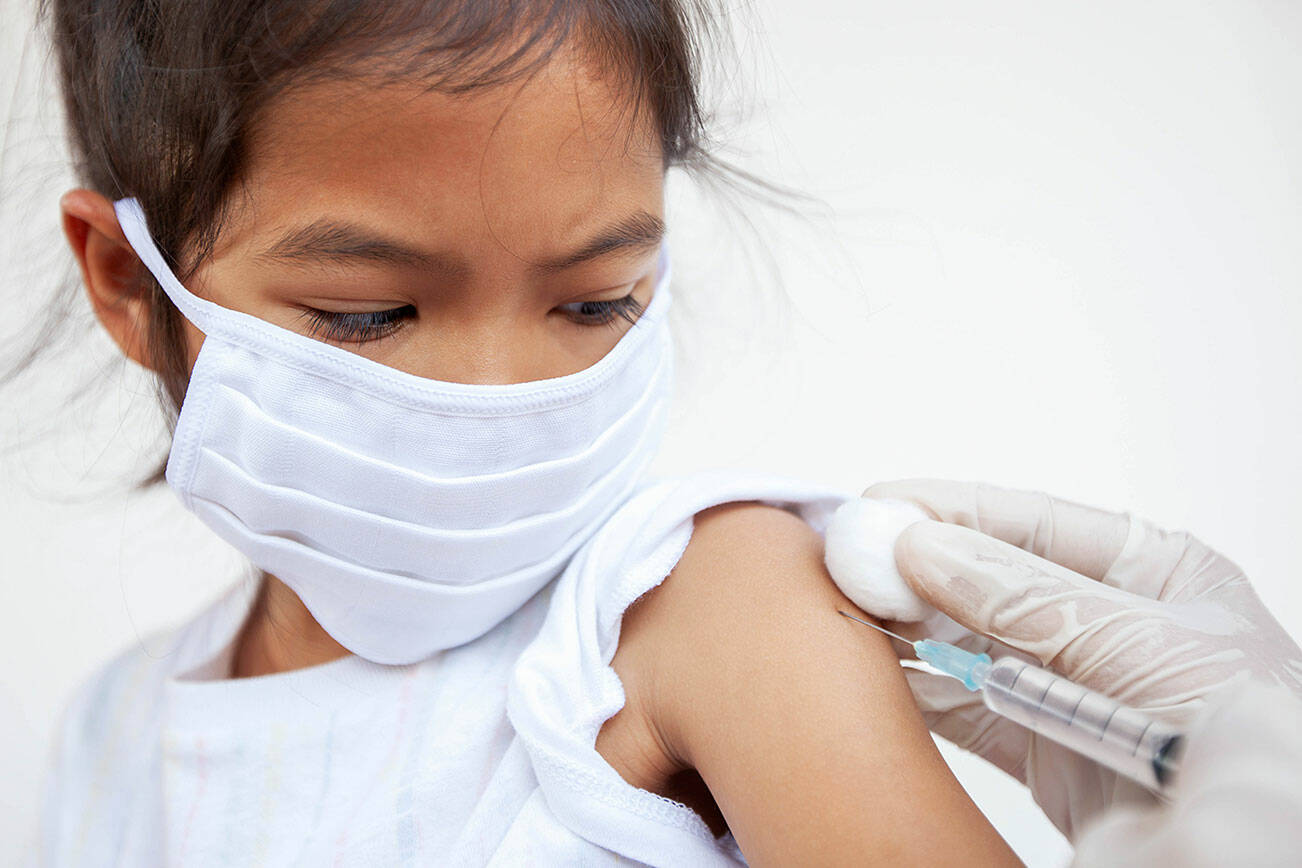Students will not be required to get vaccinated against COVID-19 to attend public schools.
The state Board of Health on Wednesday, April 13 unanimously endorsed the recommendation of a technical advisory group to hold off, at least for now, on adding it to the list of immunizations students are required to have before attending schools in Washington.
Board members expressed confidence the vaccine is safe and effective in preventing coronavirus infection. But they concurred with the advisory group on the need for more vaccine-related data for school-aged children.
They also acknowledged a large swath of parents and the broader public don’t trust the science and ardently oppose a mandate, and might respond by pulling their kids from schools.
Opponents dominated a 90-minute public comment period preceding the vote. They pleaded with board members to not force kids to do something they don’t want to do. They questioned the science, with one woman asserting people will die “if you mandate this injection.”
“The perception of the public is just not there. We have to be able to rebuild that trust,” said Elisabeth Crawford, who serves on the board and is a Mukilteo City Council member.
By putting this “on pause” and waiting to get more information, “we can have their buy-in when the decision is made,” she said.
A similar theme echoed through the comments of board members. Several said it is a subject the board could revisit in the future.
“We want to get it right,” state Secretary of Health Dr. Umair Shah said before the vote. The decision, he noted, “does not take away from the fact that our department continues to remain committed to its work to encourage the public to get vaccinated against COVID-19.”
State law requires school-aged children to be vaccinated against — or show proof of acquired immunity for — chickenpox, Rubella, measles, mumps, whooping cough and other vaccine-preventable diseases. Parents may seek an exemption for religious reasons and, for some vaccines but not all, a personal or philosophical reason.
Last fall, the state Board of Health tasked the technical advisory group with assessing whether the COVID vaccine should be added to the list of required school immunizations.
Through the course of several meetings, members evaluated the vaccine against several criteria. They included its effectiveness in reducing the risk of transmission in schools and preventing serious illness, as well as the ability of the state to implement it successfully.
While the 17 members mostly agreed on the vaccine’s value in curbing outbreaks, they expressed concern that not enough data had been compiled on vaccinating younger children. The Pfizer-BioNtech COVID vaccine has been granted emergency authorization by the Food and Drug Administration for ages 5 to 15, but it has not yet been fully approved for that age range.
Advisory group members also split on whether the policy could be deployed effectively, since it’s been such a contentious issue throughout the state. Hundreds of residents voiced opposition at committee and board meetings the past few months.
In February, the advisory group voted 7-6 to recommend against adding a COVID vaccine requirement. Four members said they were unsure.
Only two states — California and Louisiana — have added COVID vaccines to the list of required immunizations for school-aged kids, according to the National Academy for State Health Policy. The requirements would be enforced only if the FDA grants full authorization to the kid-sized vaccine dose. Another 18 states have in some way banned student COVID vaccine mandates, according to the group.
Information from The Associated Press included in this report.
Jerry Cornfield: 360-352-8623; jcornfield@heraldnet.com; Twitter: @dospueblos.
Talk to us
Please share your story tips by emailing editor@kentreporter.com.
To share your opinion for publication, submit a letter through our website https://www.kentreporter.com/submit-letter/. Include your name, address and daytime phone number. (We’ll only publish your name and hometown.) Please keep letters to 300 words or less.

